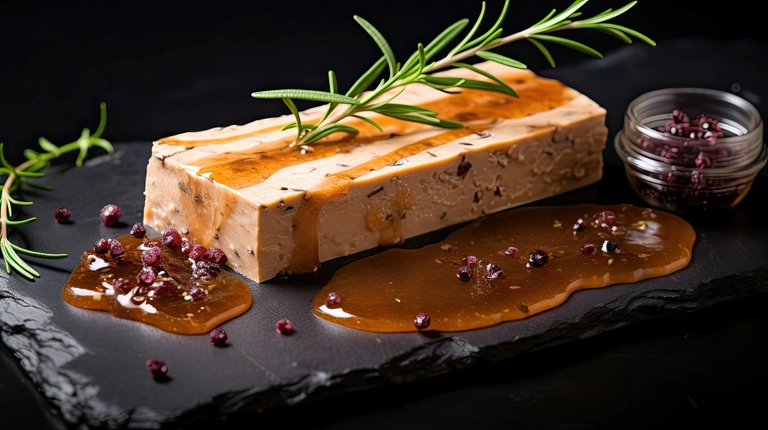love4livi.com – Foie gras, a luxurious pâté made from the liver of a duck or goose, has been a culinary delight for centuries. This French delicacy is renowned for its rich, buttery texture and intense flavor. While it is celebrated by many, it has also become a subject of controversy due to ethical concerns surrounding its production. This article delves into the history, preparation, and ethical considerations of foie gras.
A Brief History
The origins of foie gras can be traced back to ancient Egypt, where the practice of force-feeding geese to enlarge their livers was documented. However, it was in France that foie gras truly flourished. During the Roman era, the Romans introduced the technique of force-feeding to France, and it became a popular dish among the aristocracy.
The Production Process
The production of foie gras involves a controversial practice known as gavage. In this process, ducks or geese are force-fed a corn-based diet to induce rapid liver growth. This process can lead to ethical concerns, as it can cause discomfort and potential health issues for the animals.
Once the livers reach the desired size, they are harvested and prepared into various forms of foie gras. The most common forms include:
- Bloc de Foie Gras: A solid block of foie gras, often served as a terrine.
- Foie Gras Mousse: A lighter, mousse-like version of foie gras.
- Foie Gras Pâté: A pâté made with foie gras and other ingredients, such as truffles or mushrooms.
The Flavor Profile
Foie gras is characterized by its rich, buttery texture and intense flavor. The taste is often described as savory, slightly sweet, and slightly gamey. It pairs well with a variety of flavors, such as fruits, nuts, and spices.
Ethical Considerations
The production of foie gras has been the subject of much debate due to animal welfare concerns. Many animal rights organizations argue that gavage is a cruel and inhumane practice that causes unnecessary suffering to animals. As a result, several countries, including California and Israel, have banned the production and sale of foie gras.
The Future of Foie Gras
Despite the ethical controversy, foie gras remains a popular delicacy in many parts of the world. However, as consumer awareness of animal welfare issues grows, the future of foie gras is uncertain. Some producers are exploring alternative methods of producing foie gras, such as free-range feeding, which may alleviate some of the ethical concerns.
Conclusion
Foie gras is a complex and controversial food. While it offers a unique and indulgent culinary experience, it is important to consider the ethical implications of its production. As consumers, we have the power to make informed choices and support sustainable and ethical food practices.
